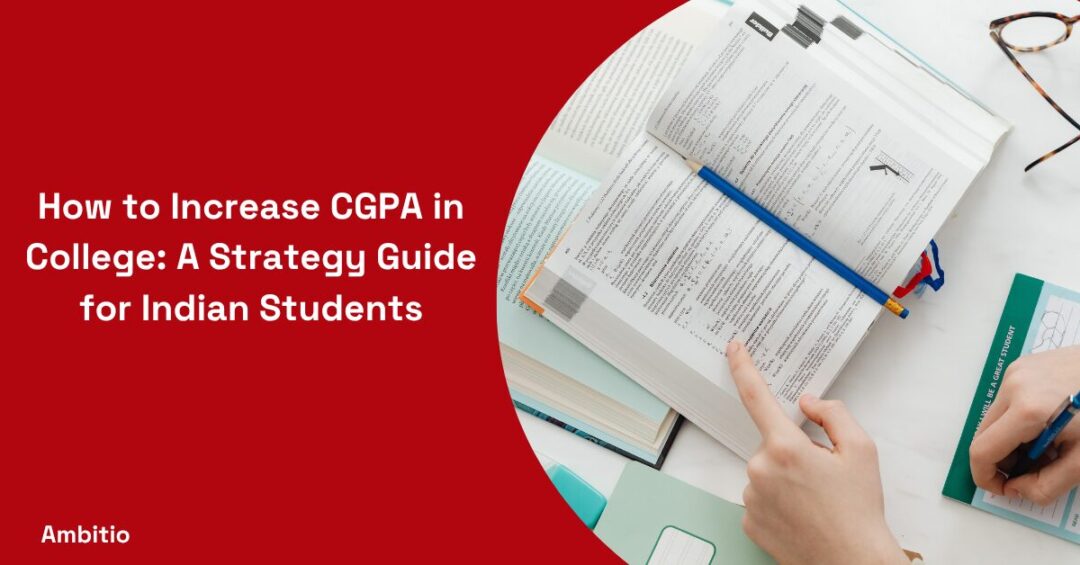24 October 2024
6 minutes read
How To Get Almost Every High Paying Job With Low GPA?

Key Takeaways
- You can land high paying jobs with low GPA by focusing on building a strong portfolio and showcasing real-world skills that outshine academic numbers.
- Networking and transferable skills matter more than grades—connect with professionals and highlight your unique experiences in the job hunt.
- Target employers who value holistic hiring and seek out companies that prioritize experience, work ethic, and growth potential over GPA
People says “You cannot have a college with low GPA – how a job” That’s wrong! Having a low GPA can feel like walking into a job interview with a ketchup stain on your shirt—you just know it’s going to be noticed. For many, the pressure to explain away a number that doesn’t reflect your actual potential can feel like a constant weight. The truth is, a lot of smart, hardworking people didn’t ace every GRE test or walk away with a 4.0, but the job market isn’t always kind to that reality.
But let’s be real: a low GPA isn’t a career death sentence. Sure, it might feel like the job boards are judging you, but employers care about much more than a number on your transcript. When you focus on building connections through LinkedIn, gaining real-world experience, and showing what you’re really capable of, that GPA starts to matter a whole lot less.
Why GPA Matters?
Why does GPA matter? Well, it’s not just about bragging rights or fancy numbers on a piece of paper. For many employers, especially in competitive fields, a GPA is seen as a quick way to gauge your academic ability and work ethic. However, it’s important to remember that while GPA is a factor, it’s not the only one.

Here are five reasons why it does still matter:
Initial Screening Tool
Many companies use GPA as an initial filter to sort through large numbers of applications. It’s an easy way to narrow the pool, especially for entry-level jobs where experience might be limited.
Perceived Commitment
A higher GPA can signal to employers that you’ve been committed and disciplined during your studies, which can translate into workplace productivity and focus.
Industry-Specific Expectations
In fields like finance, engineering, or consulting, GPA grading system can carry more weight because these industries often emphasize technical knowledge, which is (rightly or wrongly) linked to academic performance.
Competitive Job Markets
In highly competitive industries or companies, where many candidates have similar resumes, a higher GPA can serve as one more differentiating factor, giving you an edge.
Scholarships and Further Education
If you plan on pursuing graduate school or certain scholarships, GPA remains a critical factor, as it often determines eligibility and competitiveness for these opportunities.
What Are The Disadvantages Of Having Low GPA?
ccording to research, over 58% of employers use GPA as a key factor in their hiring decisions for entry-level positions. While this might feel unfair, it’s a reality that many job seekers with lower GPAs need to navigate.
Here are some of the main disadvantages of having a low GPA:
Limited Interview Opportunities
Many companies, especially larger ones, use GPA as a quick screening tool during the hiring process. A low GPA can sometimes mean your application is automatically filtered out, even before you get a chance to present your skills and experience. This can significantly reduce the number of interview opportunities you get, especially in industries where competition is tough.
Perception of Poor Work Ethic
Whether it’s accurate or not, some employers may associate a low GPA with laziness or a lack of commitment. They might assume that if you didn’t perform well in school, you may not perform well on the job either. This perception can be frustrating, particularly if your GPA doesn’t reflect your true abilities or the reasons behind your lower academic performance.
Fewer Internship Offers
Internships are key for gaining practical experience, but many companies set minimum GPA requirements, usually around 3.0 or higher. If you’re below this threshold, you may miss out on valuable internships that could help build your resume, leaving you with fewer opportunities to gain hands-on experience before entering the job market.
Harder to Compete in Certain Industries
Some industries, such as finance, consulting, and law, place a heavy emphasis on academic achievement. In these fields, a low GPA can make it significantly harder to compete against candidates with higher grades. Employers in these industries may view a high GPA as a marker of intelligence and capability, making it a key factor in their hiring decisions.
Graduate School Limitations
If you’re planning on pursuing further education, a low GPA can close doors to competitive graduate programs. Many schools have strict GPA requirements, and even if your application is considered, you may need to work harder to stand out through additional coursework, strong test scores, or relevant professional experience.
How You Can Get A High Paying Job With Low GPA?
While your cumulative GPA might not be stellar, there are other ways to stand out to potential employers. In today’s job market, hiring managers are increasingly looking for skills and experience that go beyond academic performance.

Here’s how you can leverage your strengths and land that high-paying job, even with a low GPA:
Build a Strong Portfolio
If your grades don’t tell the whole story, let your work speak for itself. Whether it’s coding projects, design samples, or written pieces, a solid portfolio can showcase your real-world skills better than a GPA of 3.0 or higher. Many recent graduates with low GPAs find that their practical work demonstrates their productivity and problem-solving abilities far more effectively than their transcript. It’s an easy way to show hiring managers that your academic performance isn’t the only measure of your potential.
Leverage Networking and LinkedIn
Networking remains one of the most powerful tools in the job hunt. While you’re applying for positions, make sure to connect with professionals in your field through LinkedIn and other platforms. Many job seekers with low GPAs discover that personal connections can sometimes matter less than grades when it comes to job opportunities. By building relationships, you’ll also gain insights into the industry and potentially find jobs that may not require a perfect academic record.
Focus on Transferable Skills and Real-World Experience
Low grades don’t define your value in the workforce. Emphasize your transferable skills like communication, leadership, or interpersonal abilities, especially if you’ve gained experience through internships, volunteer work, or part-time jobs. These experiences demonstrate your work ethic and ability to adapt in different circumstances, making you a valuable asset to any team. Highlight these skills on your resume and cover letter to stand out in the job search.
Get Strong Letters of Recommendation
A glowing letter of recommendation from a professor, supervisor, or mentor can sometimes outweigh a low GPA. If you struggled in one area academically, but excelled in others, ask for recommendations that highlight your strengths, work ethic, and dedication. Potential employers may be willing to overlook a low GPA if they see strong endorsements from people who know your capabilities firsthand.
Target Companies with a Holistic Approach to Hiring
Not every company relies heavily on academic performance when evaluating job candidates. Many businesses, especially startups and creative industries, care more about your skills, enthusiasm, and fit within their team than they do about your GPA. Companies that emphasize opportunities for advancement and real-world experience are more likely to appreciate what you bring to the table beyond a number on your transcript.
Conclusion
At the end of the day, a low GPA is just one part of your story, not the whole thing. While it may close some doors, the good news is that there are many others that can still open. Employers want to see skills, creativity, and work ethic—things that don’t always show up in academic performance. Instead of focusing on what your GPA can’t do for you, focus on what you can do for yourself.
Define industry excellence with Ambitio Pro as your partner. Our commitment to your growth is reflected in our tailored programs, expert-led training, and a community that inspires and challenges you to set new standards in your professional life.
FAQs
Can I get a high-paying job with a low GPA?
Yes, it is possible to secure a high-paying job with a low GPA, although it may be more challenging. Many employers consider factors beyond GPA, such as experience and skills
What should I focus on if my GPA is low?
Emphasize relevant work experience, internships, and extracurricular activities that demonstrate your skills and dedication. Networking can also play a crucial role in overcoming GPA limitations
Do all employers care about GPA?
Not all employers prioritize GPA; many focus on practical experience and personal qualities. Some companies may use GPA as a preliminary screening tool but will consider candidates with compelling narratives about their experiences
How can internships help me?
Internships provide valuable work experience and can significantly enhance your resume. They allow you to demonstrate your capabilities and can sometimes lead to full-time job offers
Should I include my GPA on my resume?
If your GPA is below the average or not impressive, consider leaving it off your resume unless specifically requested. Focus instead on showcasing your skills and experiences that are relevant to the job
Is networking important for job seekers with low GPAs?
Yes, networking is essential. Building connections can help you bypass traditional hiring processes where GPA might be a barrier, allowing you to showcase your skills directly to potential employers

You can study at top universities worldwide!
Get expert tips and tricks to get into top universities with a free expert session.
Book Your Free 30-Minute Session Now! Book a call now




























